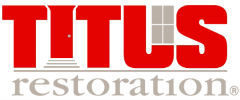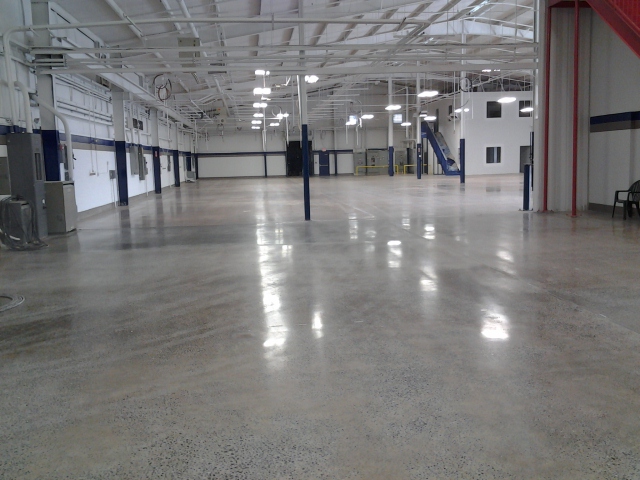Concrete dust causes issues with floor maintenance and breaks down forklift tires faster. It can be a nightmare for plant managers and sealing the floor is the most common route for addressing this issue. But how do you know what sealers are best for your facility? There are many different types of concrete sealers available – here is a breakdown of their benefits.
Pros and Cons of Industrial Concrete Floor Sealing Products
1. Lithium Densifier – Concrete densifer’s job is to penetrate the concrete and seal in the dust by reacting with it to form a gel-like substance. There are 3 types of concrete densifier; lithium-based, sodium-based, and potassium-based. Of the 3, the lithium-based densifier is the smallest molecule and therefore penetrates the deepest and the best. However, many contractors use the other densifiers regularly because they are cheaper and create more of a shine or “wow-factor” on the floor. The purpose of densifier is not to shine the floor, rather to react with the free-lime (also known as dust) in the concrete to stop it from creating a dusting nightmare in your facility. Some of these other densifiers may eventually wear off the surface (along with their shine) and are susceptible to dusting again. Lithium densifiers can be expected to last for 20 years as an industrial concrete floor sealer.
2. Topical Sealer – Topical products (as opposed to penetrating) are typically epoxies or other painted coatings. While they do stop the dust and are generally easy to clean, they can range in their durability and might not be necessary. If there is a strong chemical or acid resistance required, these type of topical industrial concrete floor sealers are necessary, however, if not, epoxy can be very expensive and only last 5-7 years depending on the quality of the product and the traffic it gets. Heavy forklift traffic over epoxy coatings is typically gouged quickly by forks and pallets. Tire marks and other wheeled traffic mar the surface quickly. Finally, moisture is an issue for coatings. If the moisture levels in the concrete are high, a moisture vapor mitigation system might need to be installed prior to the epoxy adding to the cost of the flooring.
3. Polished Concrete – Concrete polishing is a process, not a product. By means of mechanically honing the slab with finer and finer grits, the slab is sealed from dust. A densifier product is also used with concrete polishing to harden the slab further. With polished concrete slabs, the slab is smooth, dust-free, and easy to maintain with water only. In addition, it’s shine aids in light reflection and reduces lighting needs in many cases. If properly maintained, this type of flooring can last 10 years or more and then can be spiffed up easy (no removal of epoxies to restore it). For less than the cost of a topical sealer, this flooring is the choice of many warehouses and commercial buildings.
For more information on concrete floor sealing, read here. Titus Restoration has been sealing, coating, and polishing concrete floors since 1979. Our expert teams are ready to tackle your project and eliminate the stress of dusting or difficult to maintain concrete floors.

